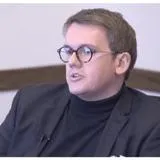Please note: this event has passed
The concept of ‘global health security’ emerged with the increasing transnational spread of disease in the late 20th century in the context of neoliberal economic globalisation, the rise in biosecurity threats, and increased migrations due to climate change, instability and armed conflicts. Since the outbreak of the COVID-19 pandemic, there have been mounting calls for a new Pandemic Treaty that would address gaps in the global governance of threats to global health security. The emerging debate has quickly turned to focus on questions of structure and forms—a United Nations treaty or a framework convention under the auspices of the WHO, and verification and enforcement mechanisms— as well as on issues of process regarding who will have voice and how the negotiations will proceed.
In this seminar, Professor Sakiko Fukuda-Parr will outline the objectives and purpose of 'global health security', and outline how discussions about a Pandemic Treaty provide an opportunity and an imperative to rethink the paradigm of global health security that has shaped the current international response to the COVID-19 pandemic. She argues that the prevailing paradigm needs to be decolonised, given that the system is large centred around creating high-performing systems for surveillance of outbreaks of new pathogens that could protect the public health and economic interests (especially through trade) of the Global North from the diseases presumed to rage uncontrolled in the Global South.
Fukuda-Parr's research highlights how the prevailing global health security paradigm does nothing to challenge the devastating effects of neoliberal legality and the unfettered power of private actors to control the infrastructure of health provision, including pharmaceutical companies. She argues, thus, that the most important thing a pandemic treaty could do to create genuine global health security focused on human security is to mandate sharing of technologies and know-how in future pandemics.
This event is taking place in person at The Nash Lecture Theatre, but you can also join the webinar through Zoom. To join the event online, select 'Online Ticket' when registering.
About the speaker
Professor Sakiko Fukuda-Parr is a Professor of International Affairs at The New School. Her teaching and research have focused on human rights and development, global health, and global goal setting and governance by indicators. From 1995 to 2004, she was lead author and director of the UNDP Human Development Reports. Her recent publications include: Millennium Development Goals: Ideas, Interests and Influence (Routledge 2017); Fulfilling Social and Economic Rights (with T. Lawson-Remer and S. Randolph, Oxford 2015), winner of the American Political Science Association’s 2016 Best Book in Human Rights Scholarship and the 2019 Grawemeyer Prize for Ideas to Improve the World Order.
Fukuda-Parr contributes actively to international policy and research processes. Most recent appointments include the UN Committee on Development Policy as Vice Chair, the Secretary General’s High Level Panel on Access to Medicines and Innovation, and Boards of Knowledge Ecology International and International Association for Feminist Economics. She directs the Independent Panel on Global Governance for Health at the University of Oslo, and also serves as Distinguished Fellow at the JICA Research Institute, Tokyo.
Discussants
Dr Clare Herrick is a Professor of Geography and Global Health in the Department of Geography and the Head of the School of Global Affairs at King’s College, London. Her research and writing explore the intersections of (global) public health, behavioural risk and urban policy. More specifically, she has conducted research on the ways in which obesity has been imagined and managed as a problem in Austin, Texas. She led on a large interdisciplinary project exploring the relationships between alcohol, poverty and development in Cape Town, South Africa, as well as follow-on research critically evaluating the consequences of Botswana’s alcohol levy. Other recent work includes an examination of volunteer experiences and the politics of global health partnerships during the West African Ebola outbreak in Sierra Leone. Her latest research project concerns the historical genesis of the non-communicable disease 'crisis' and the politics of advocacy in global health.
Dr Mark Eccleston-Turner is a Senior Lecturer in Global Health Law at King’s College, London. Mark’s research specialism is in international law and infectious diseases, notably this, pandemic influenza preparedness and access to vaccines, and the law of international organizations. He has published extensively on access to pandemic vaccine issues, including on issues of vaccine procurement for developing countries, and equitable access models. Mark has provided advice to the UK Foreign and Commonwealth Office and Department for International Development, and is a member of UK Parliament COVID-19 Outbreak Expert Database.
Cancelled due to industrial action
Due to industrial action taking place, this event has been cancelled. Follow King's International Development on Twitter for further updates on the Interrogating Development series.


